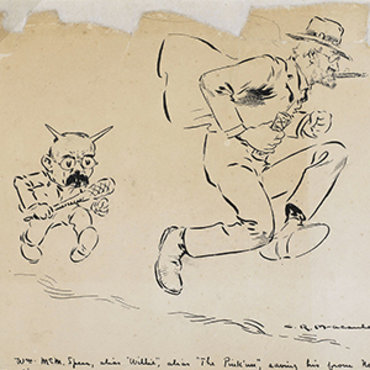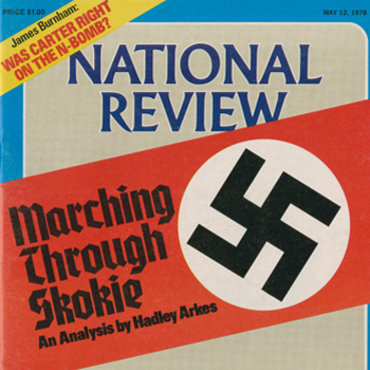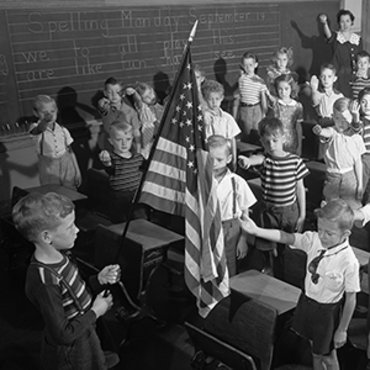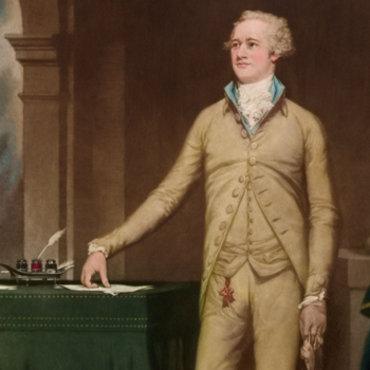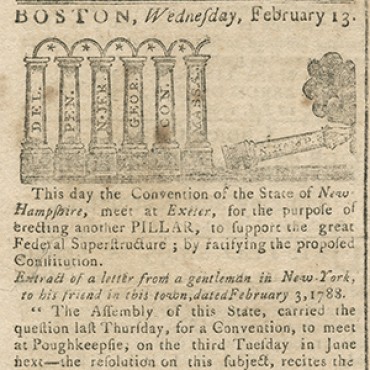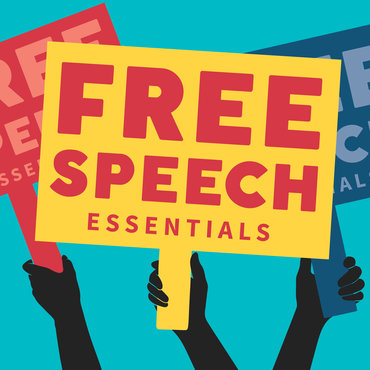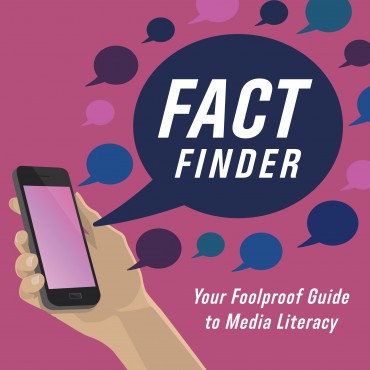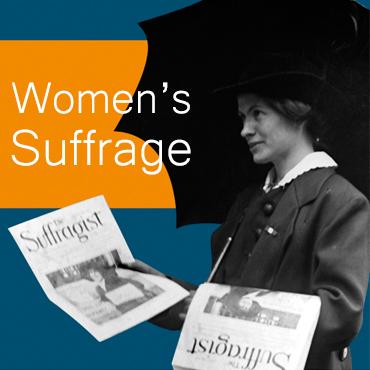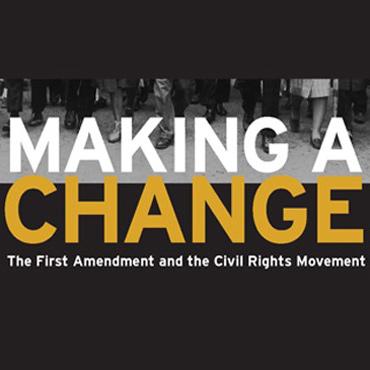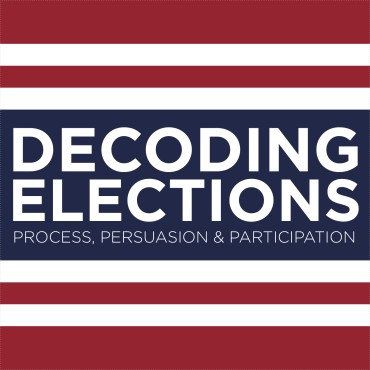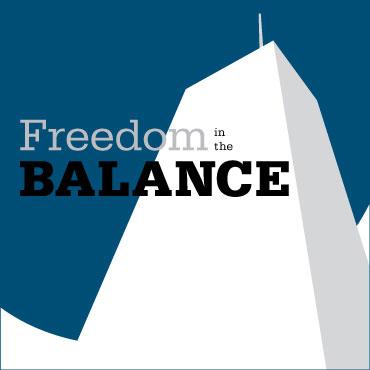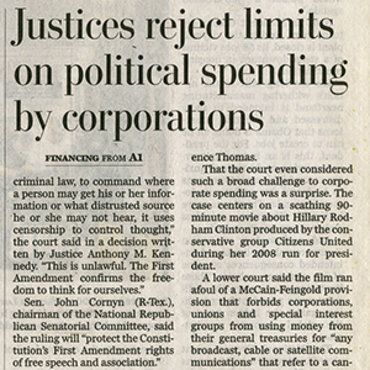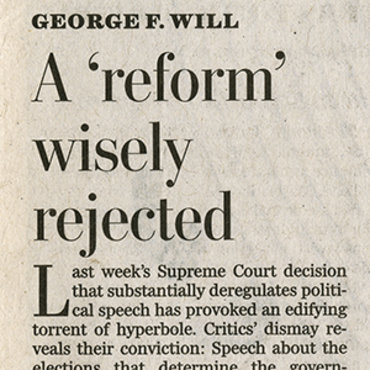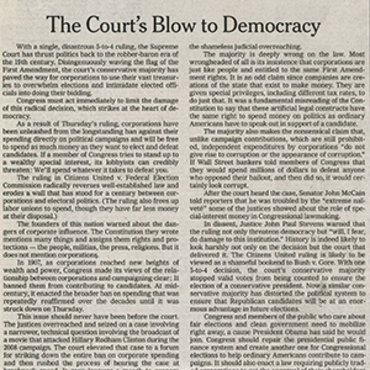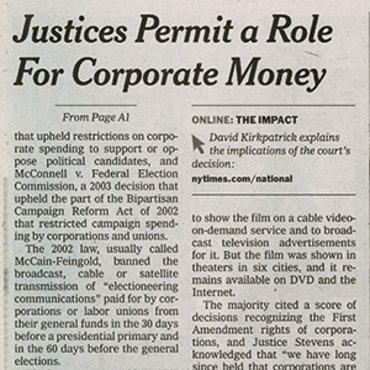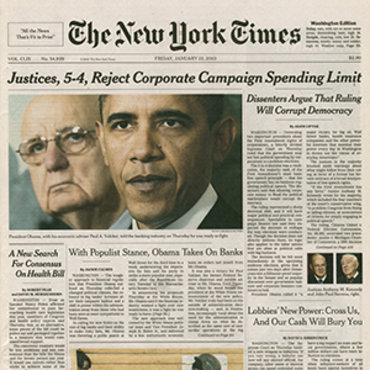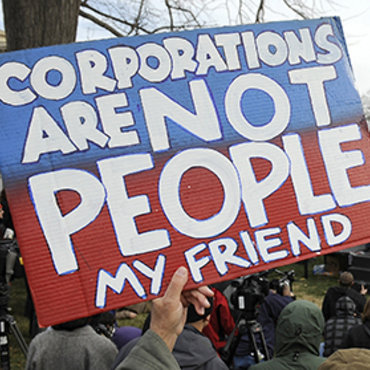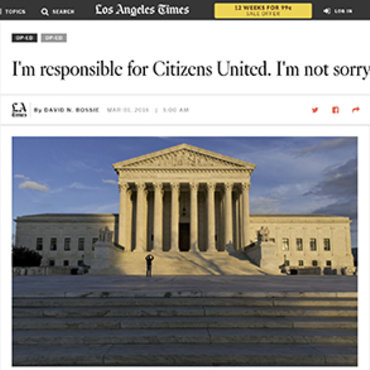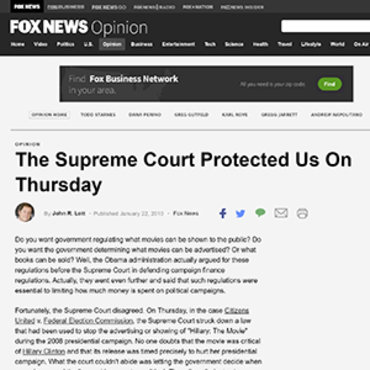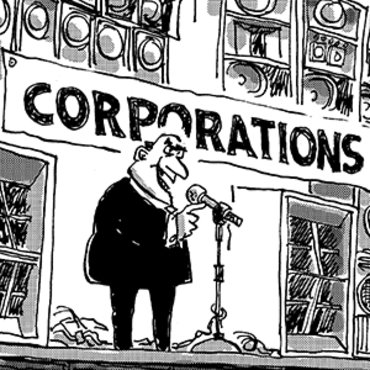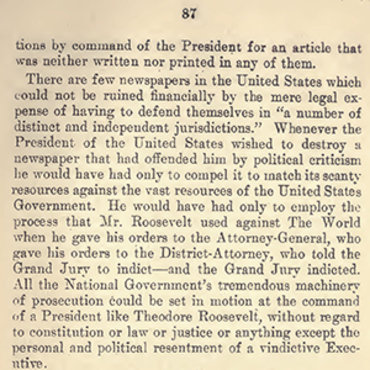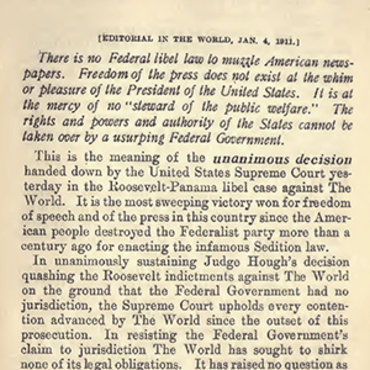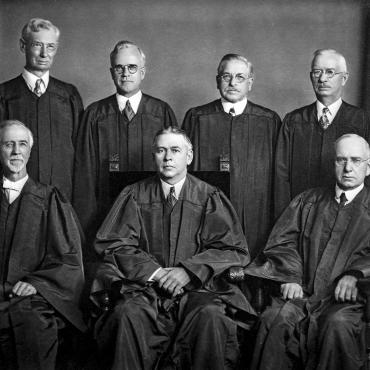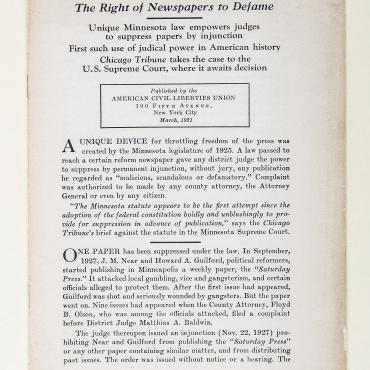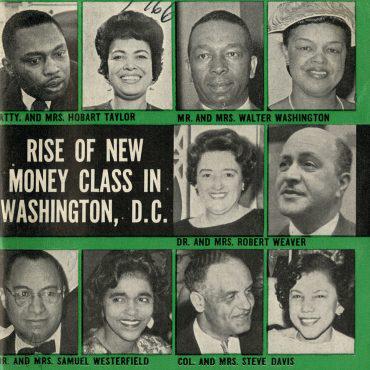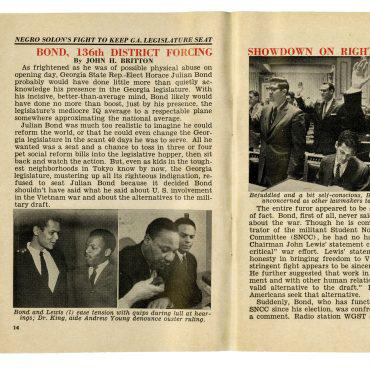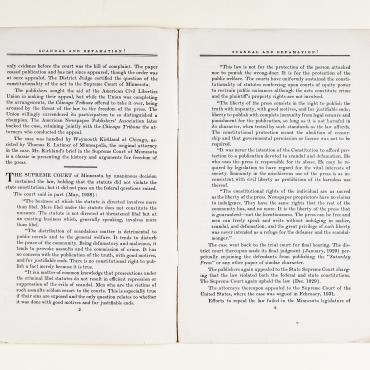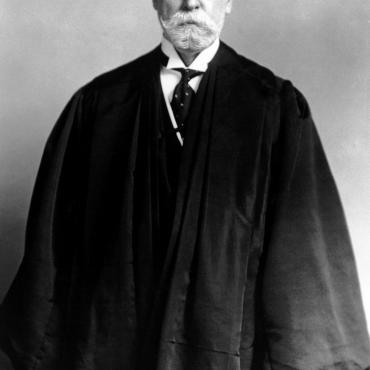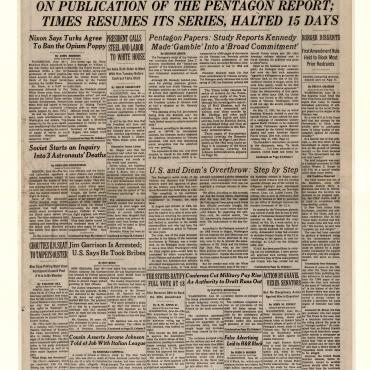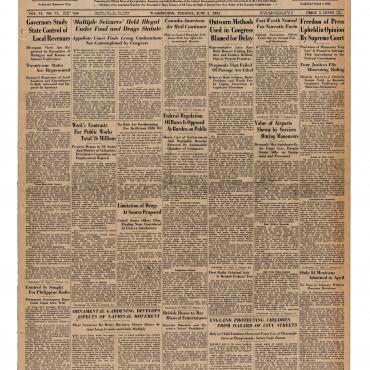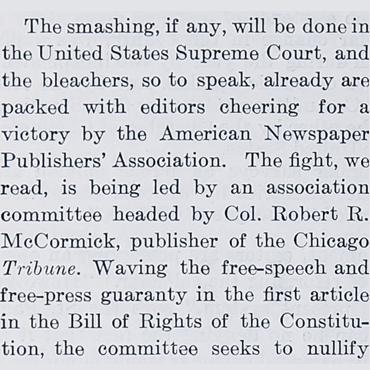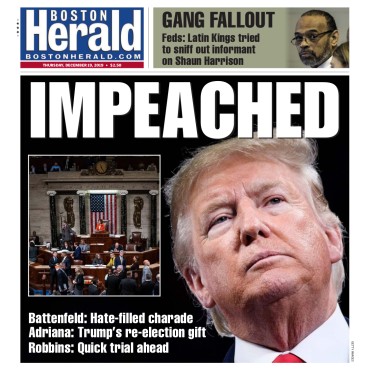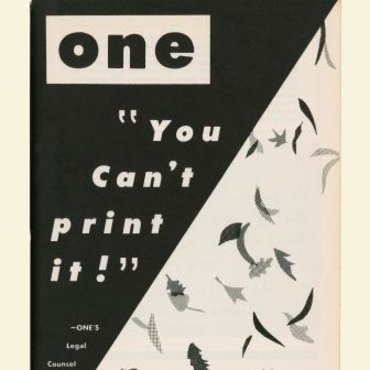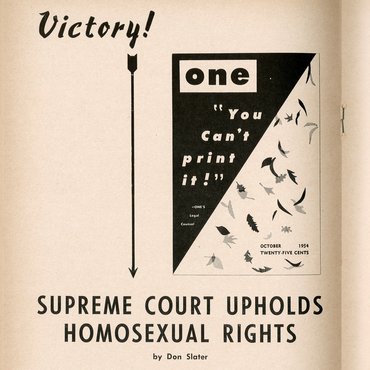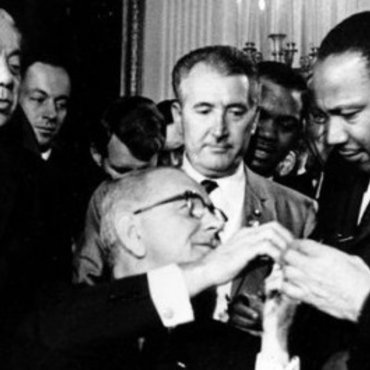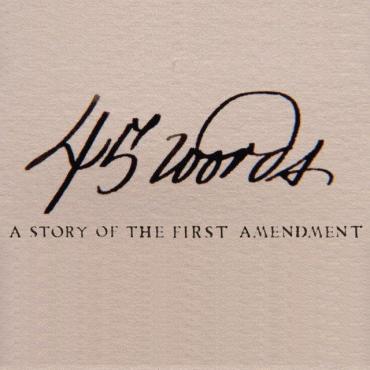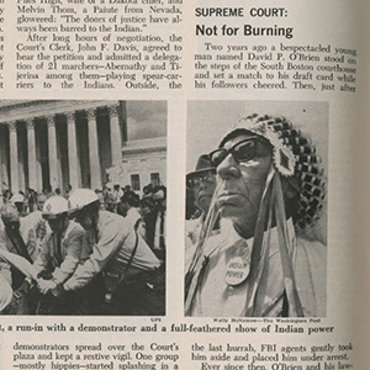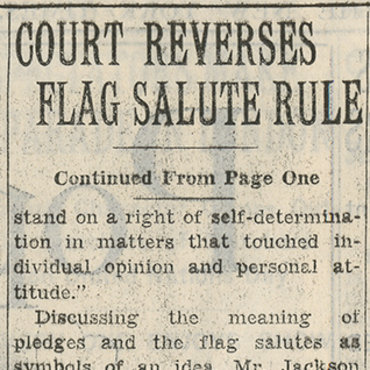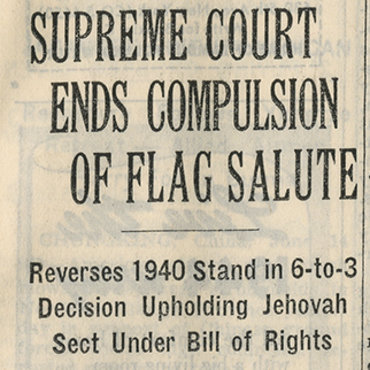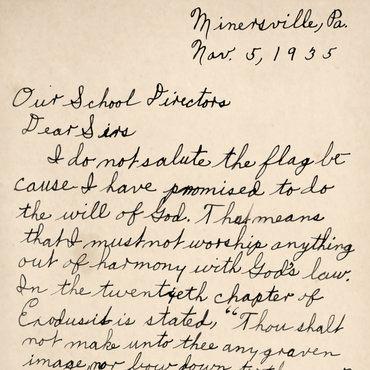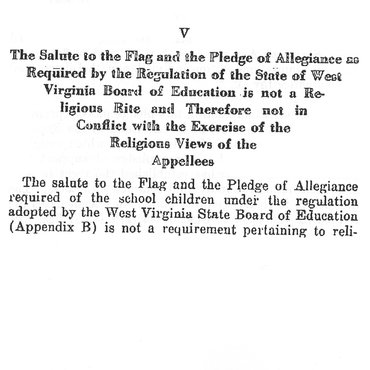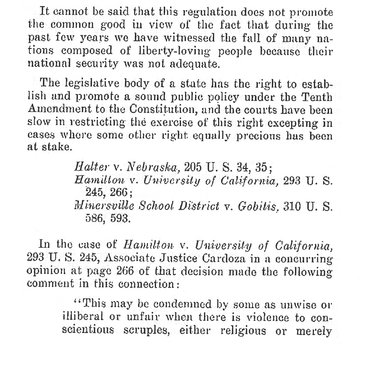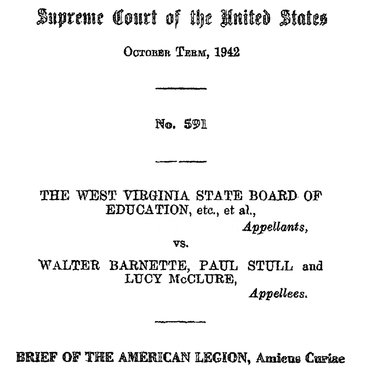2008: Paying for Political Speech
Should the First Amendment protect political speech by corporations as well as by individuals?
Get even more great free content!
This content contains copyrighted material that requires a free NewseumED account.
Registration is fast, easy, and comes with 100% free access to our vast collection of videos, artifacts, interactive content, and more.
NewseumED is provided as a free educational resource and contains copyrighted material. Registration is required for full access. Signing up is simple and free.
With a free NewseumED account, you can:
- Watch timely and informative videos
- Access expertly crafted lesson plans
- Download an array of classroom resources
- and much more!
This Critical Debate is part of a Debate Comparison:
See all Debate Comparisons- Constitution
- Politics
- Supreme Court
- 7-12
- College/University
Do your students know what they’re free to say online? At school? On a public street corner?
From censorship to cyberbullying, the First Amendment and the freedoms it protects are as hotly contested as ever. This case study is part of our EDCollection that explores 16 real free speech debates ranging from the founding of our nation to recent headlines to illustrate what free speech actually means, where it comes from, and how far it can go. It’s information everyone needs to voice their opinions and shape our society.
Using This EDCollection
This EDCollection is designed to meet the needs of a wide range of circumstances and curricula. Whether you’re a social studies teacher looking for a complete unit or an English teacher looking to spend a single class period on free expression, there’s something for everyone. This complete package will lead students to the outcomes below.
Build Fact-Based Arguments
The Free Speech Essentials curriculum aligns with state and national standards as it guides students to take a position, find evidence to support it, and make a compelling presentation to their peers. Potential evidence includes:
- Writings, images and video from 1787 to 2018
- Primary and secondary sources
Connect Past and Present
Six of the eight pairs of case studies in this EDCollection juxtapose real historical and contemporary debates on a key free expression question. These pairs allow students to explore the historical origins of a key question — and get context for tackling today’s hot-button issues. The other two pairs provide different perspectives on a contemporary issue. Topics include:
- Federalism and Facebook
- Presidents and the press
- Censorship and cyberbullying
Keep Calm (and Debate On)
Our case studies are structured to help students experience the passion of the real players, while still practicing productive debate. We provide everything you need to prepare and fully support your students as they engage in civil discourse and debates:
- Overviews of the outcomes
- Clear scenarios and suggested positions
- Suggested discussion prompts.
Today’s social and political landscape can sometimes make free speech and First Amendment controversies seem too explosive for classroom exploration. We’ve created Free Speech Essentials to give you the tools you need to start tackling these vital topics with confidence and create enriching experiences for your students.
— The NewseumED Team
THE CASE
The presidential primaries are approaching and you are a federal judge hearing a case about whether the government should be able to limit who can pay for political speech during the current campaign. The case was brought by a nonprofit advocacy corporation, which is focused not on making money, but rather on raising and spending money to support political causes.
The organization is particularly opposed to one candidate. It paid to make a documentary that is extremely critical of this candidate. The film is intended for on-demand cable, and the organization has paid for TV ads to promote it.
The Federal Election Commission (FEC), which monitors political campaigns in the United States, has attempted to block the organization from advertising or showing the film. The FEC says it violates a law that puts strict limits on how much money corporations — either for profit or nonprofit — can spend to influence political campaigns in the weeks before any given primary or general election. The law was designed to prevent corporations, which have access to large amounts of money, from having too much influence on elections. Unlike super PACs, or political action committees that can spend large amounts of money to campaign independently for candidates, corporations are not required to disclose their financial backers.
The corporation has already invested millions in this film and its promotion and clearly believes that its message is important for the public to hear and should be protected as a form of free speech. The FEC wants to enforce the existing spending limits on political messaging during the last weeks of a campaign.
Do you rule in favor of the corporation or the Federal Election Commission?
-
The corporation. The First Amendment should protect political speech no matter who — or what — is paying for it.
Political speech has always been deemed the most important kind of speech to protect because it can help shape our government. The public deserves to hear these messages before they vote, regardless of who is footing the bill.
-
The FEC. The First Amendment protections that apply to individuals should not extend to corporations.
The law in question was designed to make sure that wealthy corporations can’t drown out individual expression. Corporations like this one should find other ways to share their political messages that do not violate campaign finance laws.
- In what ways can money be used to influence politics?
- Why could it be useful or informative to know where advocacy organizations get the money that they spend to influence political campaigns?
- Why might television spots such as advertisements or documentaries be considered particularly influential during political elections versus nonelection years?
- The law blocking the film bans corporate advocacy within 60 days of a general election or 30 days of a primary election. Why is it focused on this window of time? What are the arguments for and against having additional rules about political speech during this time?
- How is money related to speech?
- Should how much money you have control how much free speech you have? Should groups with access to a lot of money have an increased ability to spread a message? If not, how would you even the playing field?



